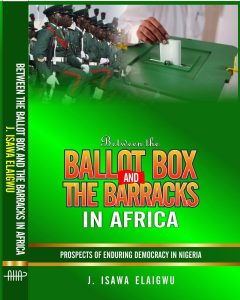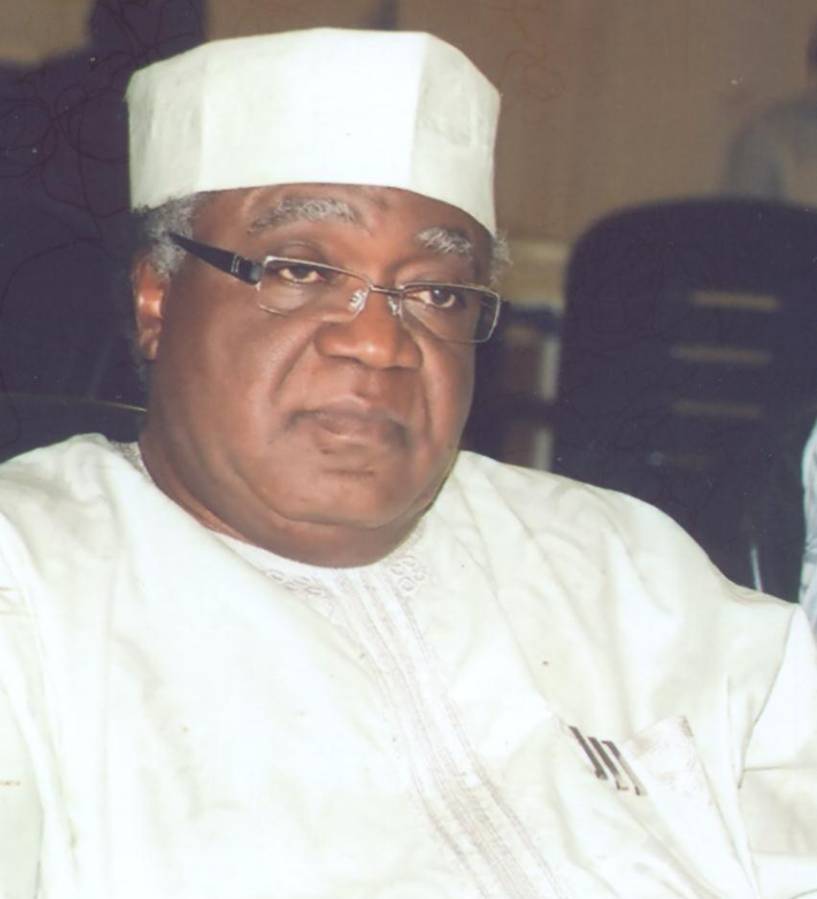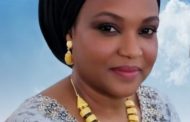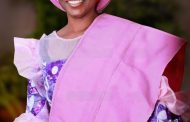Jos, the Plateau State capital, is converging later this morning at the 1st Professor Jonah Isawa Elaigwu Annual Lecture taking place at the Faculty of Arts Main Lecture Hall in ‘the Garden of Eden in decay’. There, Barrister Bala Mohammed Abdul, the Executive Secretary of the Public Complaints Commission and a former student of the professor will be speaking on ‘Fiscal Federalism and the Question of Return of Looted Assets and Proceeds of Crime’ to a diverse audience of academics, students, professionals, technocrats, amongst others. The occasion to be chaired by Prof G G Ejikeme, the Deputy Vice-Chancellor, Administration of the University of Jos will have in attendance, Prof S Maimako, the Vice-Chancellor as the Special Guest of Honour. While the hosts are Prof Alanana Chris Abimiku, the Dean of the Faculty of Social Science as well as Dr. Amayah Adakai, the Head of the Department of Political Science, the sole discussant would be Dr. Plangsat Dayil. The list shows it is going to be a full house in recognition of one person, making the question of who, then, is Prof Jonah Isawa Elaigwu to be a relevant one?

 It is not too difficult to place Prof Elaigwu. What is difficult is where to start from as to capture his place in the most complete manner. Most of his students and admirers would argue that he was an academic, through and through, dismissing the fact that he was also in government and was involved in his own way in cultural nationalism. He took this up both at the communal level and at the continental level. Along with his life-long friend and the legend, Ali Mazrui, they probed into the African identity in Global History, beginning perhaps from Mazrui’s “On the Concept ‘We Are All Africans” published in 1963. Mazrui was the one who took this most seriously, much, much earlier than Samuel Huntington who smartly carted away the prize by publishing The Clash of Civilisations at a time there was a gap for that sort of scholarship. Much, much earlier than Huntington, Mazrui had engaged this question at the African level by asserting ‘The Triple Heritage’ line of argument. For reasons that are difficult to decipher immediately, Huntington refused to benefit from what Mazrui provided. Instead, the American political scientist went ahead to categorise Africa as no more than a candidate civilisation because the continent lacks one religion which is the variable he used for his listing of the civilisations he could foresee clashing in the post Cold War.
It is not too difficult to place Prof Elaigwu. What is difficult is where to start from as to capture his place in the most complete manner. Most of his students and admirers would argue that he was an academic, through and through, dismissing the fact that he was also in government and was involved in his own way in cultural nationalism. He took this up both at the communal level and at the continental level. Along with his life-long friend and the legend, Ali Mazrui, they probed into the African identity in Global History, beginning perhaps from Mazrui’s “On the Concept ‘We Are All Africans” published in 1963. Mazrui was the one who took this most seriously, much, much earlier than Samuel Huntington who smartly carted away the prize by publishing The Clash of Civilisations at a time there was a gap for that sort of scholarship. Much, much earlier than Huntington, Mazrui had engaged this question at the African level by asserting ‘The Triple Heritage’ line of argument. For reasons that are difficult to decipher immediately, Huntington refused to benefit from what Mazrui provided. Instead, the American political scientist went ahead to categorise Africa as no more than a candidate civilisation because the continent lacks one religion which is the variable he used for his listing of the civilisations he could foresee clashing in the post Cold War.
What is important in this point is how that generation of African scholars took and gave meaning to things that were not the hottest issues then but have come round to dominate scholarship and politics from the local to national and global politics. There is a lesser known example of this in Prof Shamsudeen Amali’s Onugbo MlOko which provides a most sustained illustration of how jealousy, bitterness and anger could lead a person to cross the red line of the moral code.
Prof Elaigwu is in the same generation of the Ali Mazruis and Shamsudeen Amalis, a generation marked by their acquisition of quality education in some of the most reputable universities in the Western world and becoming powerful by virtue of being providers of the terms by which the post colonial processes could be understood. Theirs is the case of the knowledge and power nexus, not power in terms of political office occupied but power to provide the frame of reference for complex processes unfolding before the Africans after all the nasty experiences of colonialism.
In Prof Elaigwu’s case, he captured two key domains in Political Science to do this – federalism and civil-military relations. It would be surprising if it could have been otherwise. All the African countries that gained independence shortly before or shortly after independence in 1960 were made up of several nations cobbled together by their respective colonial overlords. This was completely different from the idea of the nation state in Europe itself. Naturally, the question has remained that of how this sort of nation states were to be managed. The Americans had managed to find a way around it through federalism. So, federalism became and remains a key domain and the inevitable area of specialization for students of African politics except those who took to International Relations to go and worry about what national interest might mean. Together with federalism was/is civil-military relations. Again, contrary to Europe, the African militaries discarded the idea of aloofness from politics and shoved aside or were mostly pushed to shove aside the politicians and to plant themselves in power. It became important to master this dynamics and many African political scientists did so or had to do so.


One of his most recent books if not the most recent
So, one way we encounter Prof Elaigwu is here. He has published so much in those two areas. No one appears to have asked him which of his numerous books in these two domains he is likely to be caught reading again and again. So, we don’t have an answer similar to what Chinua Achebe said when asked that question. It is only this reporter’s mischief that the book by Elaigwu which Elaigwu is likely to be caught reading again and again is Gowon. It is not because of Gowon the General and former Head of State but because of the philosophical, methodological and empirical complexities of biographies.
Beyond publishing in his area of specialization, he has taught the discipline, from Ahmadu Bello University, Zaria to the University of Jos. It is certain that majority of the audience today would be his students. In those days when the universities were national in composition at both the levels of staff and students, the identity distribution of Prof Elaigwu’s students must be as diverse as can be imagined. This is more so that, like most of his colleagues then, his teaching exertions covered the military academies, the Foreign Language Academy run by the Ministry of Foreign Affairs, the National Institute for Policy and Strategic Studies, (NIPSS) and the Administrative Staff College of Nigeria, (ASCON) at Topo in Badagry.
Then his years in government as a member of the intellectual crew that serviced the governmentality needs of the Babangida regime. Actually, the regime raided the campuses and there were very few of the established scholars who didn’t join, including well known Marxists. The regime had so much for intellectuals to do, from MAMSER to the coordination of the SAP debate and later, the political debate. There was also the Presidential Advisory Council, (PAC) where Babangida would go himself and listen to the theoretical cross-fire on the political economy of SAP, sometimes taking notes. Elaigwu was here in addition to the Council on Inter-Governmental Relations he headed.
The jury is still out there regarding what these assorted intellectuals or academics collectively accomplished in that regime. To what extent did they moderate the regime or complicated matters? Might things have been worse if they were not there or otherwise? These are still hanging questions. The only thing we know as yet is that they did not all make a hell of money by being in that government. From Bolaji Akinyemi to Egite Oyovbaire to Isawa Elaigwu, they are all battling to survive. Where is the money if they stole as we imagined? Could they have exhausted it without reproducing themselves economically or is the reporter being naïve?
Jonah Isawa Elaigwu is an interesting student of power. Sometimes in 2006, almost all the Idoma elite gathered in Otukpo. It was a session aimed at clarifying themselves on their place in Nigerian politics. Elaigwu gave the keynote address where he brought up the ‘CNNisation’ and ‘Coca-colanisation’ of the world in question or words to that effect. But that was not even the big deal. What was and is more striking was how he illustrated every claim he made by calling a witness. And he did this by calling virtually all of them by their first name, including David Mark. It was not arrogance. It was the degree of his familiarity with all of them and/or their familiarity with him, from those he grew up together in good old Otukpo or met at some point somewhere in Zaria or Lagos and so on.
Talking about coinages such as ‘CNNisation’ or ‘Coca-colanisation’, that is his specialty. He might not have originally coined every of them but he has a way of adding words together. It is unique to him and Ali Mazrui among African scholars. “The Garden of Eden in decay’ is Mazrui’s if we must cite one. For Elaigwu, all that one needs to do is leaf through his latest book. Even the title is a study in words formulation: Between the Ballot Box and the Barracks in Africa. For almost every military Head of State, he has offered a frame. He diagnosed Obasanjo as suffering from ‘residual militarism and messianic complex’. For Buhari, it is a case of ‘righteous indignation and political reality’. It is surprising intellectualism. Civil – military relations is one of his two main domains. He knows most of the senior military officers by name because he has taught them at one point or another. They know him very well too. But it doesn’t stop him from descending on them with phrases that can be considered unsparing, including his ultimate verdict that “The military came in as political physicians but ended up as political patients requiring even greater dosages of the medicinal prescription they had come in to serve to politicians”.
Long live the student of power who is himself powerful!




























